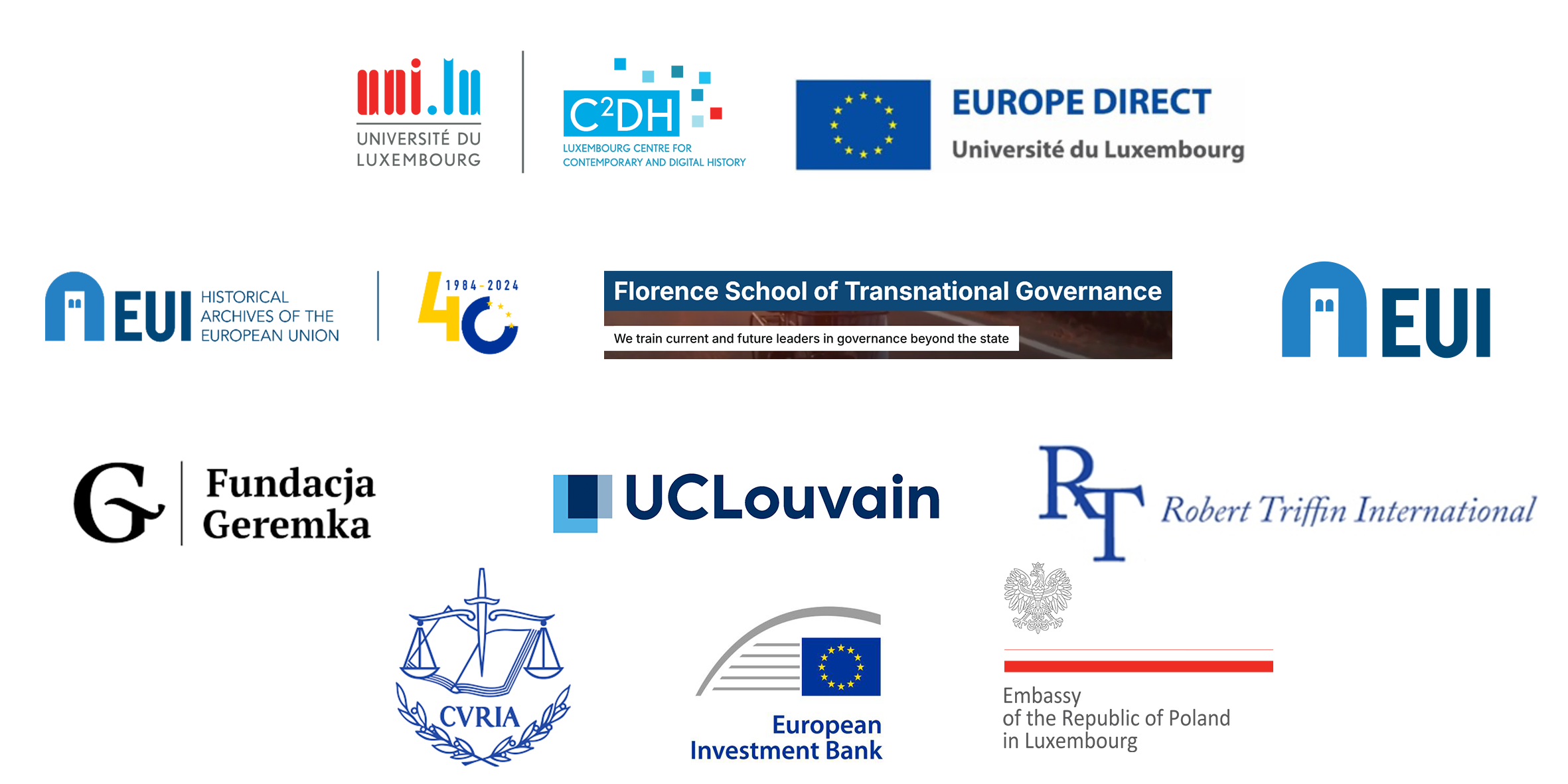The fifth edition of the Winter (Online) Lecture Series on Europe will take place at the University of Luxembourg from 2nd to 17 December 2024 in connection with the courses “History of European integration (1919-1993)” (MAHEC-142) and “Economic and social history of Europe after 1945: concepts, processes, actors” (MAHEC-63) from the Master in European Contemporary History, and the course “Democratic transitions in Central and Eastern Europe” (BCE-EU-301-04) from the Bachelor in European Cultures.
The aim is to give students on these programmes, as well as the wider academic community at the University of Luxembourg, the opportunity to find out about the history and workings of the European institutions in Luxembourg from new and unconventional angles and to discuss some of the milestones in contemporary European history with people who were involved in or witnessed these events. Each session (in French or English, with a Q&A session in French and English) will be streamed via Webex and will include a presentation by a speaker followed by a discussion with the audience and the opportunity to ask questions.
The lectures, which are also open to the wider public, are run in conjunction with Europe Direct at the University of Luxembourg (ED-UNILU) – a competitive European public history project co-funded by the European Union (2021-2025) – and several other partners including: the Historical Archives of the European Union (HAEU), the Alcide De Gasperi Research Centre on the History of European Integration at the European University Institute (EUI) (Florence, Italy), Florence School of Transnational Governance, Bronisław Geremek Foundation (Warsaw, Poland), Embassy of Poland in Luxembourg, Robert Triffin Chair at the Université Catholique de Louvain (UCL) (Belgium), Robert Triffin International Foundation (RTI) (Belgium), the Court of Justice of the European Union (CJUE) and the European Investment Bank (EIB).
The conference will be held in English.
Short biography
Ivo Maes is a Professor, Robert Triffin Chair, at the Université Catholique de Louvain and at ICHEC Brussels Management School as well as a Non-resident fellow at Bruegel. He retired in 2021 as a Senior Advisor at the Economics and Research Department of the National Bank of Belgium. He has a Ph.D. in Economics from the Katholieke Universiteit Leuven and a M.Sc. in Economics from the London School of Economics. In 2003, he was a member of the Committee for Institutional Reform of the West African Monetary Union. From May 2015 to June 2018, he served as the President of the Council of the European Society for the History of Economic Thought. He has been a visiting professor at several universities, among them Duke University (USA), the Université de Paris-Sorbonne and the Università Roma Tre. He has published extensively on European monetary integration and the history of central banking and monetary theory. Among his books are Economic Thought and the Making of European Monetary Union, (Edward Elgar, 2002), Half a century of European financial integration. From the Rome Treaty to the 21st century (Mercatorfonds, 2007), A Century of Macroeconomic and Monetary Thought at the National Bank of Belgium (National Bank of Belgium, 2010), Alexandre Lamfalussy. The Wise Man of the Euro. A conversation with Christophe Lamfalussy, Ivo Maes and Sabine Péters (LannooCampus, 2013), Architects of the Euro. Intellectuals in the Making of European Monetary Union (editor, with Kenneth Dyson, Oxford University Press, 2016) and Robert Triffin : A Life (with Ilaria Pasotti, preface by Jacques de Larosière, Oxford University Press, 2021, Best Book Award of the Italian and the European societies for the History of Economic Thought). In May 2018, he was awarded the Camille Gutt Prize for his scientific publications on money and finance, especially the making of European monetary union.
Abstract
In the process towards European economic and monetary union, two reports played crucial roles. The 1970 Werner Report argued for both a supranational monetary pillar and a supranational economic pillar, while the 1989 Delors Report focused on the monetary pillar, and there was scepticism about discretionary fiscal policy. A background paper to the Delors Report, ‘The Werner Report Revisited’, identified four weaknesses of the Werner Report: absence of internal momentum, institutional ambiguities, insufficient constraints on national policies and an inappropriate policy conception – issues that remain very much on the European Union agenda today.
Conference given in the framework of the 2024 edition of Winter (Online) Lecture Series on Europe.
Photo Ivo Maes © Bruegel, 2024

